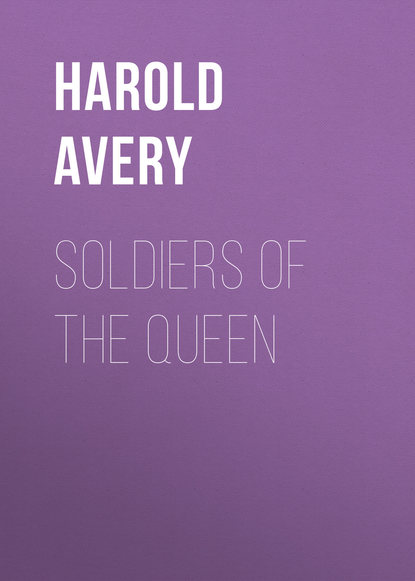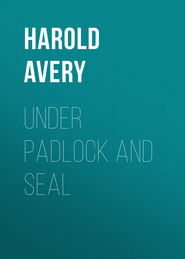По всем вопросам обращайтесь на: info@litportal.ru
(©) 2003-2024.
✖
Soldiers of the Queen
Настройки чтения
Размер шрифта
Высота строк
Поля
"Going? he's gone!"
The words were followed by an awful silence; then, for an instant, the yellow gleam of the lamp tell upon the soldier's face.
"Come, come, my lad!" said the medical officer kindly, "we did what we could for him, but it was hopeless from the first. Be thankful that you've got a whole skin yourself. You'd better rejoin your company."
The sky was paling with the first indications of the coming dawn. The men were standing to their arms, and Jack hurried away to take his place in the ranks, hiding his grief as best he could from the eyes of his comrades. Then as he turned to look once more towards the spot whence he had come, he saw, away across the river, the flush of rosy light brighten in the east, and all unbidden there came back to his memory the words of Queen Mab's hymn. The sun rose with a red glare, scattering the mist and sending a glow of warmth across the desert; and once more the old, sweet melody was sounding in his heart, while all around seemed telling of hopes fulfilled and sorrows vanquished when
"Morning's joy shall end the night of weeping."
CHAPTER XXI.
"WHEN JOHNNY COMES MARCHING HOME AGAIN!"
"It touched the tin soldier so much to see her that he almost wept tin tears, but he kept them back. He looked at her, and they both remained silent." – The Brave Tin Soldier.
It was a hot, still afternoon in August. The birds were silent, hardly a leaf stirred, and everything seemed to have dozed off to sleep in the quiet sunshine. Old Ned Brown, the cobbler, and general "handy-man" of the village, who, in days gone by, had often bound bats and done other odd jobs for "Miss Fenleigh's young nevies," laid down his awl, and gazed out of the window of his dingy little shop.
A soldier was walking slowly down the road. His boots were covered with dust, and on the breast of his red coat glittered the Egyptian medal and the Khedive's Cross.
"That must be Widow Crouch's son," said Ned to himself. "I heard he was back from the war. Maybe he'll know summat about the young gen'leman who used to come and stay up at the house yonder, and who, they say, was killed. Ah, yes! I remember him well – a nice, pleasant-spoken young chap! Dear me, dear me! sad work, sad work!" With a shake of his head, the old man once more picked up the shoe he was mending, still muttering to himself, "Yes, I remember him – sad work, sad work!"
The soldier strode on. His thoughts also were busy with memories of the past. In one sense he was not alone; for before him, in fancy, walked a boy – a rather surly, uncared-for looking young dog, with hands in his pockets, coat thrown open, and Cricket cap perched on the back of his head, as though in open defiance of the rain that was falling. The road had been damp and dismal then; to-day it was dry and dusty; but the heart of the man who trod it was no lighter than it had been that evening ten years ago.
The old cobbler had been mistaken. It was not Joe Crouch, but Jack Fenleigh, who had just passed the window of the little shop. He was thinking of the first time he had come to Brenlands at the commencement of the summer holidays, after having been kept back on the breaking-up day as a punishment for sending a pillow through the glass ventilator of the Long Dormitory.
"I didn't want to face her then," he said to himself, switching the dust off his trousers with his cane. "And yet, how kind she was! Never mind! she won't know me now. Valentine promised he wouldn't write, and he never broke his word."
Jack had walked from Melchester. More than once in the course of the journey he had hesitated, and thought of turning back; but the sacredness of the promise made to a dying man had compelled him to go forward.
He turned the corner, and slackened his pace as he saw before him the old house nestling among the trees. There was no board with TO LET printed on it, such as usually, in story-books, greets the eye of the returning wanderer. The place was just the same as it always had been; and the very fact of its being unchanged appealed to his feelings in a manner which it would be impossible to describe. The white front gate, whose hinges had been so often tried by its being transformed into a sort of merry-go-round; the clumps of laurel bushes which had afforded such good hiding-places in games of "I spy;" even the long-suffering little brass weathercock above the stable roof, which had served as a mark for catapult shooting, – these, and a hundred other objects on which his eyes rested, recalled memories which softened his heart, and brought back more vividly than ever the recollection of that faithful friend, whose last request he was about to fulfil.
"I must do it," he muttered, feeling in his pocket for the ring; "I promised him I would."
He pushed open the gate, and walked almost on tiptoe down the path, casting anxious glances at the windows. To his great relief it was not Jane who opened the door, but a new servant.
"Is Miss Fenleigh in?" he stammered. "Will you tell her a – a private soldier has brought her something from an officer who died in Egypt?"
The girl showed him into the old, quiet parlour (as if he could not have found the way thither himself), and there left him. It was very still. Nothing broke the silence but the sleepy tick of the clock, and the sound of some one (Jakes, perhaps) raking gravel on the garden path. Everything was unaltered. There was the little bust of Minerva that Barbara had once adorned with a paper bonnet; the fretsaw bookcase that the two boys had made at school; and the quaint little glass-fronted cupboard, let into the panelling, from which the watch had been stolen. In the years that had passed, only one thing in the room had changed, and that was the tall figure in uniform standing on the hearthrug.
He turned to look at himself in the glass. The dark moustache, bronzed skin, red tunic with its white collar and badges of the "royal tiger;" all these things had never been reflected there before, and for the twentieth time during the last half-hour he sought to reassure himself with the thought that his disguise was complete. "She'll never recognize me!" he muttered. "It's all right." Then the door opened, and for an instant his heart seemed to stop beating.
The same easy dignity and graciousness of manner, the same sweet womanly face, and the same depths of love and ready sympathy in her clear, calm eyes. She was dressed in mourning, and at her throat was the brooch containing the locks of the children's hair. Jack noticed it at once, and saw, too, that the little silver locket still had its place among the gold trinkets on her watch chain; and the sight of it very nearly brought him down upon his knees at her feet.
She seemed smaller than ever, and now, standing in front of him, her upturned face was about on a level with the medals on his breast.
What was it made his chest heave and his lips tremble as he encountered her gaze? However foolish and headstrong he might have been in the past, he knew he had only to declare himself and it would all be forgotten and forgiven. "You may doubt us," Valentine had said, "but we have never lost faith in you." Yes, that was it; she loved her ugly duckling, believing even now that, in spite of outward appearances, it would one day turn into a swan. But the years had slipped away, and the change had never taken place. She might hope that it had, and it was best that she should never know the truth.
With a set face he began to speak.
"I've lately returned from Egypt, and saw there your nephew, Lieutenant Fenleigh, of the – sex Regiment."
He tried to say "ma'am," but even at that moment it seemed too great a mockery, and the word choked him.
"I was with him when he died on the banks of the Nile. He asked me to bring you this, and to give it to you with my own hands."
She took the ring, but without moving her eyes from the speaker's face.
"He asked me to tell you that he remembered you always."
The voice grew husky, and the lady drew a little closer, perhaps to hear more plainly what was said.
"And to say that he carried his – his love for you with him down into the grave."
With a great effort Jack finished the message. The words had brought back a flood of vivid recollections of that dreadful night, and his eyes were filled with blinding tears. He turned to brush them away, and as he did so he felt Queen Mab's arms meet round his neck.
"You dear old boy! don't you think I know you? Don't you think I knew you as soon as you came inside the gate?"
He made some attempt to reply, uttered a broken word or two, and then turned away his head; but she, standing on tiptoe, drew it down lower and lower, until at length it rested on her shoulder.
And so the ugly duckling ended his wanderings.
No autumn frosts or winter snows could ever have fallen on that garden, for here were the same flowers, and fruit, and ferns as had bloomed and ripened that last August holiday seven years ago. So, at least, thought Jack, as he and his aunt walked together along the paths.
"Did he write from Egypt to tell you about me?"
"No; but I've always been expecting you. I knew you'd come back some time."
"I didn't think you'd recognize me."
"Valentine knew I should. Don't you see it was you he sent home to me, and not the ring?"
Jack was silent. Everything that his eye rested upon reminded him of that faithful, boyish friendship, and his lip quivered.
Queen Mab noticed it, and changed the subject.
"I wonder what Jakes will think to see me walking about arm-in-arm with a soldier," she said gaily. "Never mind, I must make the most of it while it lasts. I'm afraid I shan't have many more opportunities of 'keeping company' with a red-coat."
"How d'you mean?" he asked, with an uneasy, downward glance at his uniform. "My time isn't up for nearly three years; and I know I ought not to come here in this rig-out."
"Don't talk nonsense," she answered. "You're a pretty soldier to be ashamed of your cloth. Isn't it possible for a man to do his duty unless he has a pair of epaulettes on his shoulders? Can't he do it under any kind of coat? Come now," she added, shaking his arm, and looking up into his face with a mischievous twinkle in her eyes, "don't you think, for the matter of that, a man could be a hero in his shirt sleeves?"
"Yes," answered Jack, laughing.
"Oh, you do! I'm glad you've come to that conclusion at last."
"Why?"
"Why? because I think you'll soon have to give us a practical illustration of how a man can distinguish himself by being capable and trustworthy, even in plain clothes. That opens up a subject that I have a lot to tell you about. Have you heard that your father and your Uncle John are friends again?"







